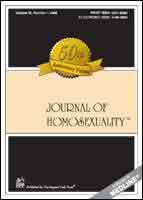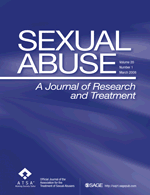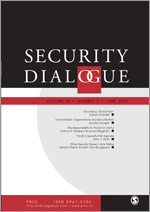Violence is the use of physical force to cause harm to people, or non-human life, such as pain, injury, death, damage, or destruction. Some definitions are somewhat broader, such as the World Health Organization's definition of violence as "the intentional use of physical force or power, threatened or actual, against oneself, another person, or against a group or community, which either results in or has a high likelihood of resulting in injury, death, psychological harm, maldevelopment, or deprivation."
Abuse is the improper usage or treatment of a person or thing, often to unfairly or improperly gain benefit. Abuse can come in many forms, such as: physical or verbal maltreatment, injury, assault, violation, rape, unjust practices, crimes, or other types of aggression. To these descriptions, one can also add the Kantian notion of the wrongness of using another human being as means to an end rather than as ends in themselves. Some sources describe abuse as "socially constructed", which means there may be more or less recognition of the suffering of a victim at different times and societies.
Psychological abuse, often known as emotional abuse or psychological violence, is a form of abuse characterized by a person subjecting or exposing another person to a behavior that may result in psychological trauma, including anxiety, chronic depression, clinical depression or post-traumatic stress disorder amongst other psychological problems.

The Journal of Homosexuality is a peer-reviewed academic journal covering research into sexual practices and gender roles in their cultural, historical, interpersonal, and modern social contexts.
The Archives of Sexual Behavior is a peer-reviewed academic journal in sexology. It is the official publication of the International Academy of Sex Research.

Rape is a type of sexual assault involving sexual intercourse, or other forms of sexual penetration, carried out against a person without their consent. The act may be carried out by physical force, coercion, abuse of authority, or against a person who is incapable of giving valid consent, such as one who is unconscious, incapacitated, has an intellectual disability, or is below the legal age of consent. The term rape is sometimes casually inaccurately used interchangeably with the term sexual assault.
Sibling abuse includes the physical, psychological, or sexual abuse of one sibling by another. More often than not, the younger sibling is abused by the older sibling. Sibling abuse is the most common of family violence in the US, but the least reported. As opposed to sibling rivalry, sibling abuse is characterized by the one-sided treatment of one sibling to another.
Intimate partner violence (IPV) is domestic violence by a current or former spouse or partner in an intimate relationship against the other spouse or partner. IPV can take a number of forms, including physical, verbal, emotional, economic and sexual abuse. The World Health Organization (WHO) defines IPV as "any behavior within an intimate relationship that causes physical, psychological or sexual harm to those in the relationship, including acts of physical aggression, sexual coercion, psychological abuse and controlling behaviors." IPV is sometimes referred to simply as battery, or as spouse or partner abuse.
Sexual violence refers to a range of completed or attempted sexual acts in which the affected party does not or is unable to consent. Theories on the causes of sexual violence are numerous and have come out of many different disciplines, such as women's studies, public health, and criminal justice. Proposed causes include military conquest, socioeconomics, anger, power, sadism, traits, ethical standards, laws, and evolutionary pressures. Most of the research on the causes of sexual violence has focused on male offenders.

As sexual violence affects all parts of society, the responses that arise to combat it are comprehensive, taking place on the individual, administrative, legal, and social levels.
Child sexual abuse (CSA), also called child molestation, is a form of child abuse in which an adult or older adolescent uses a child for sexual stimulation. Forms of child sexual abuse include engaging in sexual activities with a child, indecent exposure, child grooming, and child sexual exploitation, such as using a child to produce child pornography.
The Association for the Treatment and Prevention of Sexual Abuse (ATSA) is an international, multi-disciplinary, non-profit organization with a stated goal of making society safer by preventing sexual abuse. ATSA promotes sound research, evidence-based practice, informed public policy, and collaborative community strategies that lead to the effective assessment, treatment, and management of individuals who sexually abuse or are at risk to abuse. ATSA sets ethical and practice standards for treatment providers, and provides referrals. The association was incorporated in 1985 and has its headquarters in Beaverton, Oregon, United States.

Sexual Abuse is a peer-reviewed academic journal that publishes articles about the clinical and theoretical aspects of sexual abuse, including its etiology, consequences, prevention, treatment, and management strategies. It is the official journal of the Association for the Treatment and Prevention of Sexual Abuse. The editor-in-chief is Michael Seto. Ronald Langevin established the journal under the title Annals of Sex Research in 1988. It adopted the name Sexual Abuse: A Journal of Research and Treatment in 1995 and then its current name in 2015.
Sexual and Relationship Therapy is a peer-reviewed, scholarly journal offering a multidisciplinary forum for review and debate in the field of sex and relationship therapies. The journal presents original research and best practice and is a vehicle for new theory, methodology, and application. The focus of the journal is international and interdisciplinary in nature, with a range of contributions from diverse places on the globe, and myriad disciplines like sex therapy, sexual medicine, psychology, sexology, family therapy, public health, sociology, counselling, and medical ethics. It is the official journal of the College of Sexual and Relationship Therapists (COSRT). The journal was established in 1986 under the title Sexual and Marital Therapy, and under its current title since 2000. The editor-in-chief is Dr. Markie Twist.
Research published from 2000 to 2020 illustrates increased prevalence rates of sexual violence against people with intellectual disabilities, compared to the general population.:61 The World Health Organization (WHO) funded a study which concluded that 15% of the adult population worldwide in 2012 had a disability, putting them at increased risk of physical, sexual, and intimate partner violence. Of that 15%, 6.1% had intellectual disability with 5.5% experiencing sexual violence. In another 2012 report, the WHO found that worldwide, children with intellectual disabilities experienced a 4.6 times greater risk of sexual violence than those without disability.

Security Dialogue is a peer-reviewed academic journal that publishes scholarly articles which combine contemporary theoretical analysis with challenges to public policy across a wide-ranging field of security studies. The journal is owned by the Peace Research Institute Oslo which also hosts the editorial office. As of 1 October 2015 Mark B. Salter is the editor-in-chief. Marit Moe-Pryce has been the managing editor of the journal since 2004. Current associate editors are Emily Gilbert, Jairus V. Grove, Jana Hönke, Doerthe Rosenow, Anna Stavrianakis, and Maria Stern.
Violence and Victims is a bimonthly peer-reviewed academic journal covering theory, research, policy, and clinical practice in the area of interpersonal violence and victimization, touching diverse disciplines such as psychology, sociology, criminology, law, medicine, nursing, psychiatry, and social work.

Robin J. Wilson is a Canadian psychologist, specializing in work on sex offenders.
Positive criminology is based on the perspective that integration and positive life influences that help individuals develop personally and socially will lead to a reduced risk of criminal behavior and better recovery of offenders. Integration works in three levels: inter-personal, intra-personal and spiritual. Positive influences include participation in recovery programs, such as those for substance use disorders. Factors that can make growth difficult include a long-standing pattern of criminal activity, serious adverse life events, and chronic mental health illness.
The Canadian Journal of Criminology and Criminal Justice is a quarterly peer-reviewed academic journal covering the theoretical and scientific aspects of the study of crime and the practical problems of law enforcement, administration of justice and the treatment of offenders, particularly in the Canadian context. It is published by the University of Toronto Press.





